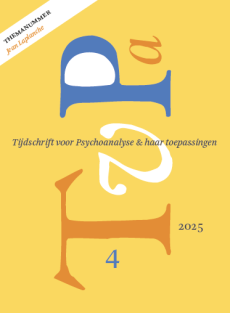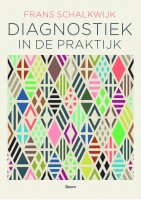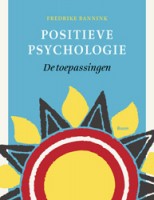De eerste stappen
Summary
The First Steps – A psychoanalytically informed prevention project for immigrant parents with infants
The First Steps is a psychoanalytically inspired culture-sensitive prevention programme for immigrant families with infants from zero to three. By adapting the principles and the method of this preventive developmental guidance programme to the non-western cultural backgrounds of the participants, as well as by focusing on the migration history and the familial/attachment vicissitudes, a process of working through is set up. Specific questions and concerns as well as conflicts and problems with child care, education and partnership are clarified in the perspective of these personal, familial and cultural histories, with the aim of redefining or translating the actual parent-child experience into an integrated and future-oriented perspective. This method opens up new and more constructive vistas for parent-infant dyads that are at risk as a result of culture change or shock, minority and low socio-economical status, or poverty.
Literatuur
- Akhtar, S. (1999). Immigration and identity. Turmoil, treatment and transformation. New York: Basic Books.
- Benoîst, J. (red.) (1996). Soigner au pluriel – Essais sur le pluralisme medical. Parijs: Khartala.
- Dolto, F. (2000). Kinderen aan het woord – Psychoanalyse, kind en psychose. Redactie en vertaling: T. Traversier & J. Corveleyn. Nijmegen: SUN.
- Emde, R.N. & Spicer, P. (2000). Experience in the midst of variation – New horizons for development and psychopathology. Development and psychopathology, 12, 313-331.
- Fraiberg, S., Adelson, E., & Shapiro, V. (1975). Ghosts in the nursery – A psychoanalytic approach to the problems of impaired infant-mother relationships. Journal of the American Academy in Child Psychiatry, 14, 397-421.
- Fraiberg, S. (1980). Clinical studies in infant mental health – The first year of life. Londen: Tavistock.
- Garza-gGerrero, C. (1974). Culture shock: its mourning and the vicissitudes of cultural identity. Journal of the American Psychoanalytic Association, 22, 408-429.
- Grinberg, L. & Grinberg, R. (1989). Psychoanalytic perspectives on migration and exile. New Haven: Yale University Press.
- Kagitçibasi, C., Sunar, J. & Bekman, T. (2001). Long-term effects of early intervention – Turkish low-income mothers and children. Journal of Applied Developmental Psychology, 22, 333-361.
- Kareem, J. & Littlewood, R. (red.) (1992). Intercultural therapy – Themes, interpretations and practices. Oxford: Blackwell.
- Lanfranchi, A. (2004). Stagnatie en transformatie in migrantengezinnen – Invloed van ouderlijke interculturele strategie op het schoolse leerproces van de kinderen. Tijdschrift Klinische Psychologie, 34, 159-167.
- Meurs, P. & Cluckers, G. (1999). Das Verlangen nach einer Verflochtenheit mit der Herkunftskultur bei Migrantenfamilien in einer psychodynamischen Psychotherapie. Praxis der Kinderpsychologie und Kinderpsychiatrie, 48, 27-36.
- Meurs, P. & Gailly, A. (1998). Wortelen in andere aarde – Migrantengezinnen en hulpverleners ontmoeten cultuurverschil. Leuven / Amersfoort: Acco.
- Meurs, P. & Jullian, G. (2004). Ontwikkelingsgerichte opvoedingsondersteuning bij kansarme, allochtone gezinnen. Tijdschrift Klinische Psychologie, 34, 168-181.
- Moro, M.-R., Nathan, T., & Lebovici, S. (1989). Le bébé migrateur. Spécificité et psychopathologie des interactions précoces en situation migratoire. In S. Lebovici & F. Weil-Halpern (red.), Psychopathologie du bébé (p. 683-722). Parijs: Presses Universitaires de France.
- Spicer, P. (2002). Méthodes ethnographiques, psychanalyse et interventions précoces. Devenir, 14, 389-411.
- Stern, D. (1995). The Motherhood Constellation – A unified view from parent-infant psychotherapies. New York: Basic Books.
- Winnicott, D. W. (1956). Primary maternal preoccupation. In: D. W. Winnicott (red.) (1958), Collected Papers: Through paediatrics to psycho-analysis (p. 300- 305). Londen: Tavistock.
- Winnicott, D. W. (1971). Playing and reality. New York: Basic Books.
 © 2009-2026 Uitgeverij Boom Amsterdam
© 2009-2026 Uitgeverij Boom Amsterdam
ISSN 1382-516x
De artikelen uit de (online)tijdschriften van Uitgeverij Boom zijn auteursrechtelijk beschermd. U kunt er natuurlijk uit citeren (voorzien van een bronvermelding) maar voor reproductie in welke vorm dan ook moet toestemming aan de uitgever worden gevraagd:
Behoudens de in of krachtens de Auteurswet van 1912 gestelde uitzonderingen mag niets uit deze uitgave worden verveelvoudigd, opgeslagen in een geautomatiseerd gegevensbestand, of openbaar gemaakt, in enige vorm of op enige wijze, hetzij elektronisch, mechanisch door fotokopieën, opnamen of enig andere manier, zonder voorafgaande schriftelijke toestemming van de uitgever.
Voor zover het maken van kopieën uit deze uitgave is toegestaan op grond van artikelen 16h t/m 16m Auteurswet 1912 jo. Besluit van 27 november 2002, Stb 575, dient men de daarvoor wettelijk verschuldigde vergoeding te voldoen aan de Stichting Reprorecht te Hoofddorp (postbus 3060, 2130 KB, www.reprorecht.nl) of contact op te nemen met de uitgever voor het treffen van een rechtstreekse regeling in de zin van art. 16l, vijfde lid, Auteurswet 1912.
Voor het overnemen van gedeelte(n) uit deze uitgave in bloemlezingen, readers en andere compilatiewerken (artikel 16, Auteurswet 1912) kan men zich wenden tot de Stichting PRO (Stichting Publicatie- en Reproductierechten, postbus 3060, 2130 KB Hoofddorp, www.cedar.nl/pro).
No part of this book may be reproduced in any way whatsoever without the written permission of the publisher.
Nieuwsbrief Boom Psychologie
Meld u nu aan en ontvang maandelijks de Boom Psychologie nieuwsbrief met aantrekkelijke aanbiedingen en de nieuwe uitgaven.
Aanmelden


